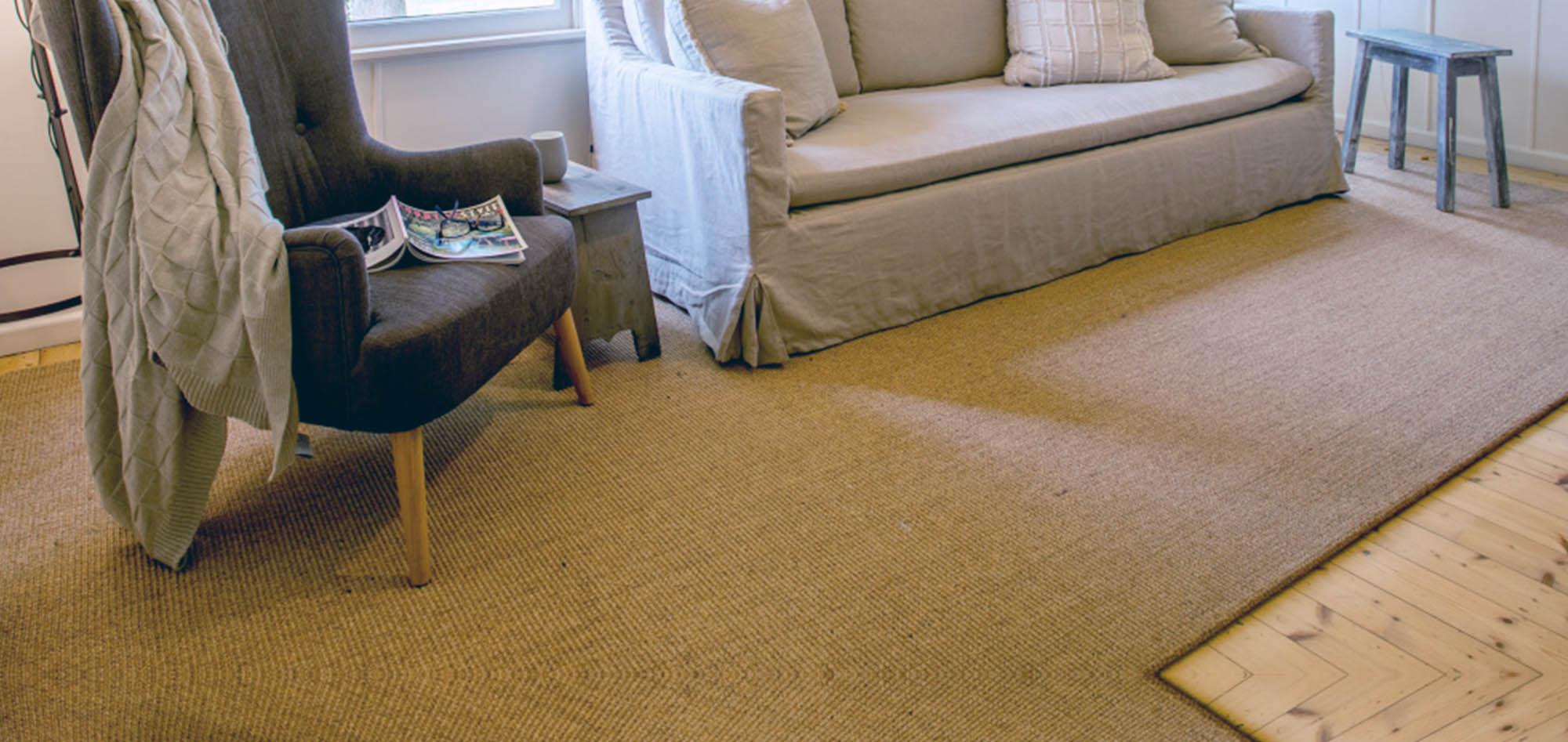Maintain your natural flooring products
Attend to all accidents as soon as possible.
The quicker you can attend to any accident creates a greater opportunity to avoid permanent staining.
The two main types of accidents are:
Liquid Spills
Place a towel or colourfast cloth over the area where the spill has occurred and continue to tread on the spill with both feet. Keep doing this until the majority of the moisture is absorbed.
Solids
The first step is to remove the solid in the carpet/rug with an appropriate utensil without being too rigorous. Using water, diluted wool wash or a mild detergent and a sponge, scrub the area lightly. Then dry the area as per above advise in Liquids.
Mild Spills
Food (non greasy), mud and water
- Act immediately by scraping or brushing the spill off the floorcovering. A vacuum cleaner may be useful here. Soak up any residual using a proper cotton towel.
- Using water and sponge, scrub the area lightly
- Dry the material using a towel and allow material to air by opening windows
Medium Spills
Beetroot, blood, butter, chocolate, cooking oil, coffee, cordials, cream, curry, egg, grass, gravy, grease, milk, mustards, olive oil, paint (water), salad dressing, tea.
- Act immediately by scraping or brushing the spill off the floorcovering. A wet/dry vacuum cleaner may be useful here. Soak up any residual using a proper cotton towel.
- Wash using natural detergents (wool wash or dishwashing liquid) without bleaches or brightening agents. Use scrubbing or dishwashing brush to gently penetrate weave. Soak up excess fluid and then repeat process times until spill dyes are diluted. Work the stain from outside in making sure you feather the outer ring. Water will not harm the cellulose fibres – but make sure excess is removed immediately after cleaning. A dark area will remain until material has dried out. This will take from one hour to several days depending on over floor ventilation and season. Warm air ventilation will help but do not directly heat material. DO NOT OVER SCRUB AS THIS CAN REMOVE COLOUR
- The purpose of the above is to remove most of the spill from the material. The faster you respond the less of a residual mark
- With larger spills we recommend that you immediately have the floorcovering cleaned using water extraction. Request that the spill area be worked hard and then feathered out immediately around it.
Acids
Acids including citric (fruit juice), red and white wine, uric (pet and baby) vomit.
- Act immediately by scraping or brushing the spill off the floorcovering. A wet/dry vacuum cleaner may be useful here. Soak up any residual using a proper cotton towel. Place weight on the towel to assist contact with the material along with using areas that are relatively dry to help with transfer of spill
- Wash using natural detergents (wool wash or dishwashing liquid) without bleaches or brightening agents. Use scrubbing or dishwashing brush to gently penetrate weave. Soak up excess fluid and then repeat process times until spill dyes are diluted. Work the stain from outside in making sure you feather the outer ring. Water willl not harm the cellulose fibres—but make sure excess is removed immediately after cleaning. A dark area will remain until material has dried out. This will take from one hour to several days depending on over floor ventilation and season. Warm air ventilation will help but do not directly heat material. DO NOT OVER SCRUB AS THIS CAN REMOVE COLOUR
- The purpose of the above is to remove most of the spill from the material. The faster you response the less of residual mark
- With larger spills we recommend that you immediately have the floorcovering cleaned using water extraction. Request that the spill area be worked hard and then feathered out immediately around it.
Other Spills
Ballpoint ink, bitumen, candle wax, furniture polish, nail polish, paint (oil).
- Wipe and soak up excess. Make sure site is well ventilated and there are no naked flames. Most of the candle wax for example could be removed using pointy nosed pliers or a knife.
- Use White Spirits of Mineral Turpentine, alcohol for ballpoint ink and acetone for nail polish. Use scrubbing, dishwashing or old toothbrush to penetrate weave. Soak up excess solvent and work the stain from the outside to the inside. A cotton bud is also useful. Dilute and remove stain by repeating process as necessary. The solvent should be left to evaporate naturally.
- Experiment with a small area first—as otherwise you may find stain spreading
NOTE: After drying there is often what appears to be a bleached area. This can be caused by over zealous scrubbing but is more likely that the area is simply cleaned. The remedy is to have the floorcovering cleaned using water extraction.

